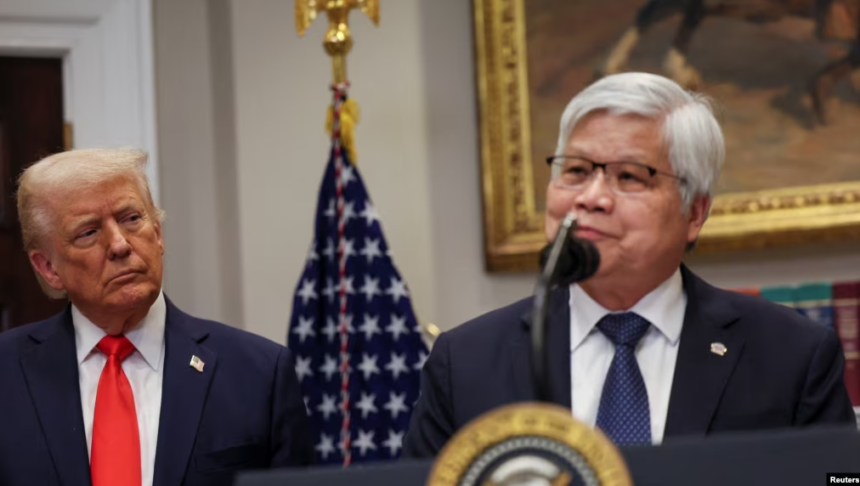Taiwanese semiconductor manufacturing giant Taiwan Semiconductor Manufacturing Co. (TSMC) announced plans on Monday to invest $100 billion in the United States to build five additional semiconductor factories over the coming years.
C.C. Wei, CEO of TSMC, revealed the investment plan during a meeting at the White House with President Donald Trump.
“We need to be able to produce the microchips and semiconductors we need right here,” said President Trump. “For us, this is a matter of national security.”
TSMC, one of the world’s largest semiconductor manufacturers, is a key supplier to major American electronics companies.
This $100 billion investment will reduce the United States’ dependence on semiconductors manufactured in Asia and is an extension of TSMC’s initial investments in the US. Last April, TSMC announced plans to increase its US investment from $25 billion to $65 billion and add a third plant in Arizona by 2030.
Following his election victory, President Trump intensified efforts to boost domestic industries and create jobs, largely in response to concerns about the economy.
TSMC’s announcement follows a series of similar developments. Last month, Apple stated it would invest $500 billion over the next four years. UAE billionaire Hussain Sajwani and SoftBank also committed billions of dollars in investments.
TSMC said it “welcomes discussions on a shared vision for innovation and development in the semiconductor industry and ways to strengthen the technology sector alongside our clients.”
Under President Biden’s administration, the U.S. Department of Commerce finalized a $6.6 billion government subsidy agreement in November for TSMC’s U.S. division, located in Phoenix, Arizona, to produce semiconductors.
In 2022, President Biden signed the CHIPS and Science Act, which allocated $52.7 billion in subsidies for the production and research of U.S.-made semiconductors.
Taiwan’s dominant position as a semiconductor producer, used in everything from smartphones to military aircraft, has raised concerns over excessive reliance on the island, especially as China increases pressure with its territorial claims over Taiwan.
China claims Taiwan as part of its territory, but Taiwan’s democratically elected government rejects these claims.
Under President Biden’s administration, the U.S. Department of Commerce convinced five major semiconductor companies to build factories in the U.S. as part of a program aimed at addressing national security risks posed by imported microchips.
Howard Lutnick, President Trump’s Commerce Secretary, told lawmakers last month that the program was “an excellent investment” to rebuild the sector, though he declined to promise that he would approve donations already authorized by the department, stating he wanted “to read, analyze, and understand them.”
A spokesperson for TSMC said last month that the company had received $1.5 billion in subsidies under the CHIPS Act before the new administration took office, based on the agreement’s principles.
Last year, TSMC agreed to use the world’s most advanced ‘2-nanometer’ technology for producing microchips at its second Arizona plant, expected to begin production in 2028. The company also committed to using its most advanced technology, ‘A16,’ in Arizona.
TSMC has already begun manufacturing advanced 4-nanometer microchips for U.S. clients in Arizona.
The contract granted to TSMC also includes up to $5 billion in government loans with low interest rates.







